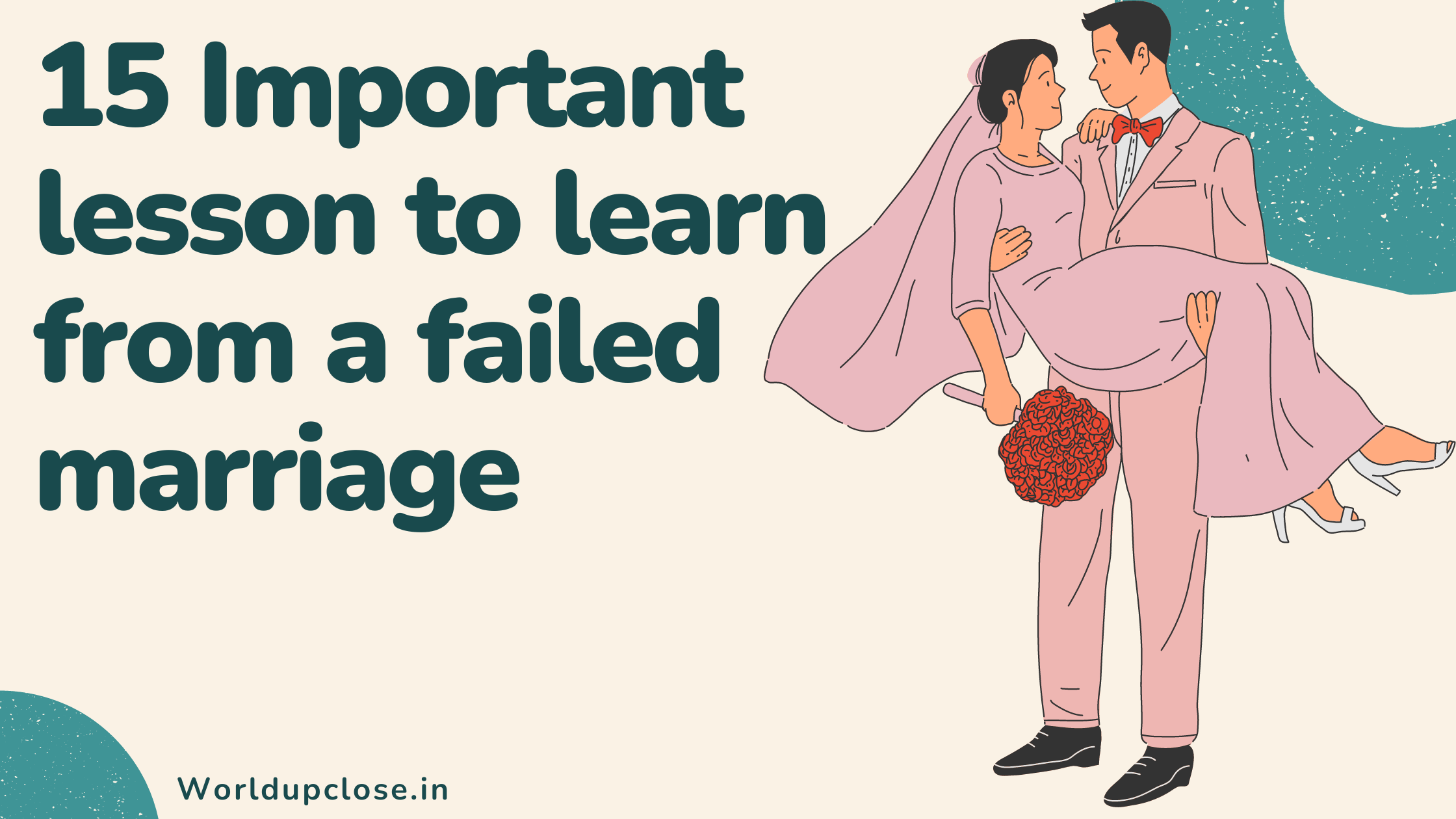
10 Early signs of codependency in a relationship
Codependency is a term that often gets thrown around in self-help books and therapy sessions, but what does it really mean? At its core, codependency refers to an unhealthy pattern of behavior where individuals become overly reliant on others for their own sense of self-worth and identity.
It goes beyond the typical interdependence we all experience in relationships, instead, codependents tend to lose themselves completely in the needs and desires of others. In a codependent relationship, there is often an imbalance of power and control.
One partner may take on the role of caretaker or enabler, while the other assumes the position of needing constant support or validation. This pattern can be detrimental to both individuals involved, as it perpetuates a cycle of dependency and prevents healthy emotional growth. Recognizing codependency is essential for breaking free from this destructive pattern.
It requires self-reflection and introspection to uncover underlying beliefs and behaviors that contribute to these dynamics. In relationships flourishing with codependency’s presence, there exists a symbiotic connection built upon shared pain—an unspoken agreement where suffering binds them together under the guise of love.
What are the early signs of codependency in a relationship?
Excessive Focus on Partner’s Needs
When we find ourselves constantly putting our partner’s needs above our own, neglecting our own well-being in the process, it may be an early sign of codependency. Although caring deeply for someone is commendable, losing sight of our own desires and aspirations can leave us feeling empty and unfulfilled.
It’s vital to remember that maintaining a sense of self is crucial within any partnership. While nurturing your connection with your loved one is essential, but you should also not forget about nurturing yourself as well. Soon enough, we lose sight of who we are as individuals.
Our identities merge with theirs until it feels impossible to differentiate where they end and we begin. It’s almost as if our sole purpose in life revolves around making them happy. True partnership involves mutual care and support, it is not about sacrificing your identity or losing sight of your own aspirations.
Taking time to pursue personal interests or hobbies not only enriches your individuality but also strengthens the relationship you share. Evaluating how much attention and energy you devote solely to your partner versus yourself might offer valuable insights into striking a healthier balance.

Difficulty Setting Boundaries
Boundaries play a crucial role in any healthy and balanced relationship. They are like the invisible lines that define where one person ends and another begins, ensuring that both individuals maintain their autonomy, emotional well-being, and personal space.
One of the early signs of codependency is finding yourself constantly saying “yes” when you really want to say “no.” You might find it difficult to decline requests or express your true feelings because you fear upsetting or disappointing others.
This behavior gradually erodes your sense of self-worth and autonomy. For individuals grappling with early signs of codependency within their relationships, these boundary-setting challenges are magnified tenfold.
Perhaps it’s because we’ve been conditioned to prioritize harmony over personal fulfillment, or maybe it stems from deep-rooted insecurities that whisper tales of abandonment if we dare assert ourselves too boldly. Learning how to set healthy boundaries is an essential step towards reclaiming our autonomy and fostering balanced connections with others.
Lack of Personal Independence
In any relationship, it’s natural to become deeply entwined with your partner’s life. We support each other through thick and thin, sharing dreams, goals, and responsibilities. However, as love flourishes, there can be a fine line between interdependence and codependency.
One key sign of a potentially codependent dynamic is the lack of personal independence within the relationship. You may find yourself constantly seeking validation or reassurance from your partner before making decisions. Over time, this reliance on their approval erodes our sense of self. Codependency thrives in an environment where individuality takes a backseat to pleasing others.
Personal interests fade away as we mold ourselves solely around our partner’s desires and needs. Our world becomes confined within their boundaries. The absence of personal independence silently chips away at our happiness and fulfillment. The hobbies that once brought us joy are forgotten amidst fulfilling roles designated by society or partners.
We must remember that maintaining personal independence should never be seen as selfishness but rather an act of self-care. Recognizing these early signs is essential because identifying them opens the door to understanding ourselves better within a relationship dynamic.
You must embrace the thought and want of personal independence as it is not selfishness, it’s simply acknowledging that each individual deserves space and time for self-discovery and growth within any relationship dynamic.
Taking Responsibility for Partner’s Emotions
It is only natural to feel empathy and concern for our partner’s emotional well-being. We all want to be there for our loved ones during challenging times, offering a shoulder to lean on. However, when this caring instinct morphs into an overwhelming sense of responsibility for their emotions, the desire to fix their pain becomes an all-consuming mission, clouding our own needs and boundaries.
While empathy and support are vital components of any healthy partnership, it is equally important to remember that each individual holds ultimate responsibility for managing their own emotional landscape. Recognizing when we cross that fine line from being supportive to becoming overly involved can be challenging.
It requires self-reflection, open communication with your partner, and learning how to strike a balance between compassionately holding space for them while maintaining your own mental health. For true love and connection to flourish, it is crucial that each person takes ownership of their feelings while supporting one another authentically.
Fear of Rejection or Abandonment
Codependency often flourishes where fear of rejection or abandonment takes root. We become so dependent on our partner’s approval and validation that their absence feels like impending doom. This insidious cycle traps us in a constant battle between seeking reassurance while being terrified that even the slightest misstep could lead to isolation.
The irony is that these fears can unknowingly perpetuate the cycle of codependency itself. We yearn to be loved unconditionally yet struggle to love ourselves first. Our desire for connection becomes intertwined with self-doubt, creating a tangled web of insecurities.
Acknowledging this fear is just the first step towards understanding ourselves better—our needs, desires, and boundaries within relationships. Only then can we start untangling those threads of codependency woven through our connections with others.
Avoidance of Personal Goals
One of the early signs that codependency might be creeping into a relationship is when individuals start neglecting their own personal goals. We all have dreams and aspirations, whether it’s pursuing a new career, starting a business, or simply taking up hobbies that bring us joy.
However, in codependent relationships, these ambitions can take a backseat as the focus shifts solely onto the needs and desires of our partner. We begin to compromise on our own aspirations to accommodate our partner’s wishes. Perhaps we postpone that art class we were so excited about because they need you at home more often.
Or maybe you give up on that promotion at work because your partner feels threatened by your success. As time goes on, this avoidance becomes more pronounced. Our once-vibrant individuality begins to fade away as we prioritize fulfilling the demands and expectations set by others rather than nurturing ourselves.
It can feel like losing an important piece of who we are. When we begin prioritizing our partner’s objectives over our own ambitions, alarm bells should start ringing in our heads.
While compromise is important in any healthy relationship, consistently abandoning our dreams for the sake of another person can lead us down a treacherous path. Recognizing this early sign of codependency allows us to evaluate if our relationship is truly healthy and supportive, for both parties involved.
Difficulty Expressing True Feelings
The inability to authentically communicate emotions can create a web of complications within any relationship, and when left unaddressed, it may even indicate early signs of codependency. The difficulty in expressing true feelings can stem from various underlying factors within a codependent relationship.
It could be fear of confrontation or rejection, a desire to avoid conflict at all costs, or even a deep-rooted need for approval and validation from our partner. In some cases, individuals might not even be aware of what they truly feel anymore. Years of suppressing emotions and prioritizing others’ needs have left them disconnected from their own inner world.
The result is a confusing mix of numbness and confusion when it comes to identifying and articulating how they genuinely feel. This difficulty in expressing authentic emotions can create a significant barrier between partners, hindering genuine connection and intimacy.
Without open communication about one’s true feelings, relationships are likely to stagnate at surface-level interactions rather than deepening into meaningful connections.
Overreliance on the Relationship for Happiness
Relationships are undoubtedly a source of joy and fulfillment in our lives. They bring us love, companionship, and support through life’s ups and downs. However, there is a fine line between deriving happiness from a healthy relationship and becoming overly dependent on it.
Sometimes without even realizing it, we may find ourselves relying solely on our partner for our emotional well-being. We believe that their presence alone can fix all the voids within us. It’s crucial to remember that true fulfillment lies within ourselves first and foremost.
Our partners should complement us rather than define us entirely. In nurturing an overreliance on a relationship for happiness, we risk losing sight of our own individuality, the qualities that make us unique. So how do we strike a balance between finding happiness within ourselves while enjoying a loving partnership?
That’s something only each individual can discover through self-reflection and growth. An overreliance on a relationship for fulfillment can lead to feelings of inadequacy, fear of abandonment, and an inability to engage in activities outside of the partnership.
Constant Need for Approval
The desire for approval can manifest itself in various forms within a relationship. It may appear as constantly seeking reassurance or relying heavily on others’ opinions to validate one’s worth. This insatiable hunger stems from deep-rooted insecurities, leaving individuals vulnerable to bending over backward just to gain a momentary glimpse of acceptance.
This relentless quest for validation often stems from deep-rooted insecurities that have taken hold over time. Perhaps past experiences have taught you that love must be earned through unwavering compliance or excessive sacrifices. Consequently, you lose sight of your true self in the pursuit of pleasing another.
Seeking external approval becomes a never-ending cycle; one which ultimately erodes self-esteem and contributes to feelings of inadequacy. So how do we break free from this cycle? How do we reclaim our autonomy while nurturing healthy connections with others? Through understanding ourselves better, we open doors to healthier connections built upon mutual respect rather than endless external validation.
Sense of Guilt or Anxiety
You are in a relationship where your happiness becomes secondary to your partner’s needs. You constantly question whether you’ve done enough, given enough, been there enough. Nobody should be burdened with such weighty emotions just to maintain a relationship. Healthy partnerships thrive on mutual support and understanding, not on guilt trips and constant anxiety.
Simultaneously, anxiety creeps into every corner of their mind like shadows at dusk. It nags persistently, whispering doubts and insecurities that amplify with each passing day. Their self-worth becomes intricately tied to meeting others’ needs, failure is not an option when so much weight rests on their shoulders.
These early signs reveal themselves subtly at first but grow louder with each passing day. So take a moment to reflect, are you constantly feeling guilty or anxious? Do these emotions stem from within yourself or are they imposed by someone else?
Self-introspection is very needed when these signs are quite prevalent in a relationship. If you do not intervene, there comes a time when you will lose yourself in the relationship.




